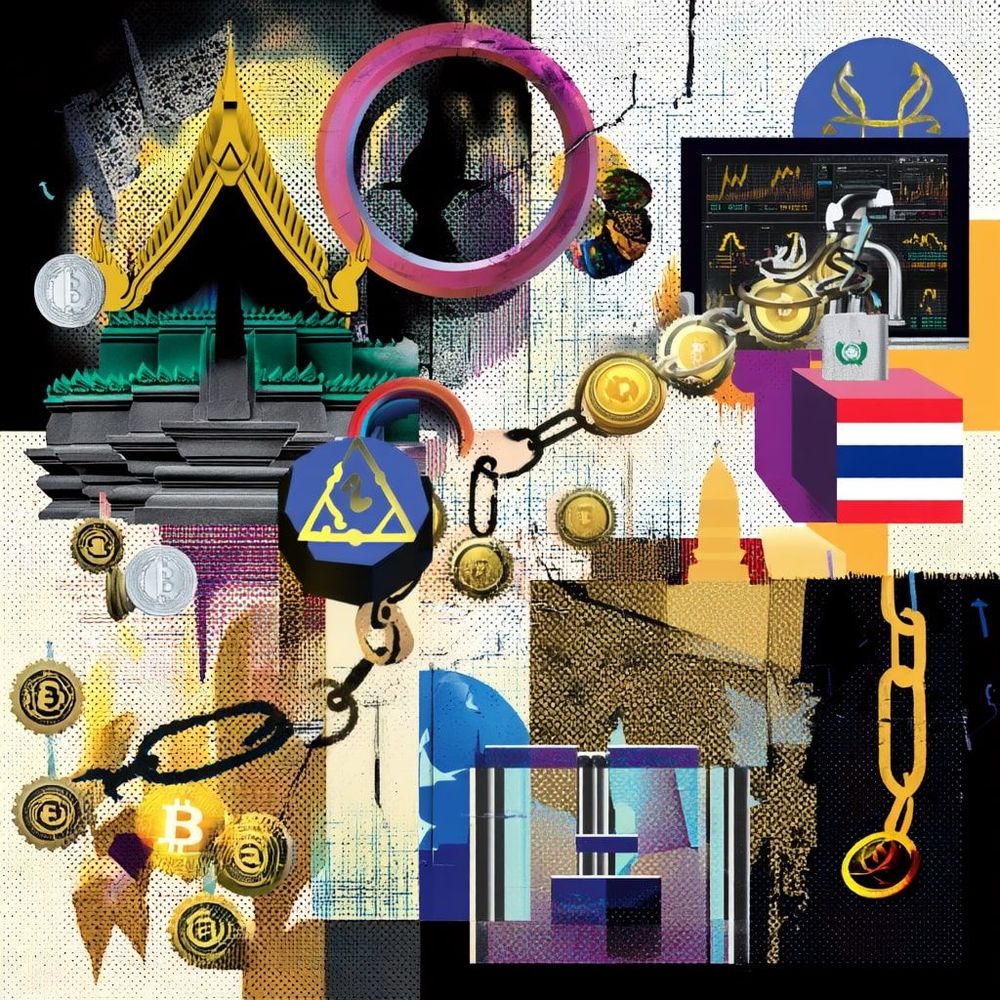Thailand Cracks Down on Foreign Crypto Platforms with Stricter Laws
Thailand Tightens Crypto Regulations: What’s Changing and Why It Matters 🚨
Thailand has just rolled out some major changes to tighten up regulations for crypto businesses, especially those operating from abroad. The Securities and Exchange Commission (SEC) has introduced amendments to the Digital Asset Business Act and Cybercrime Act. The main goal? To boost efforts against cybercrime, prevent money laundering through crypto, and safeguard Thai citizens’ financial interests. Let’s dive into what these changes mean for the crypto space.
The Key Objectives of the Amendments 🎯
The new amendments are all about better control and security for cryptocurrency platforms not authorized to serve Thai users. Here’s the breakdown of the most crucial changes:
- Ban on Services for Thai Citizens 🚫:
- Platforms can no longer use Thai language on their websites or apps.
- They can’t offer investment options in Thai Baht or accept payments via Thai bank accounts.
- MDES Gets the Power to Block ⚡:
- The Ministry of Digital Economy and Society (MDES) can now block websites and apps providing services to Thai users. Expect this action to happen faster and more efficiently, aiming to combat fraud and money laundering.
- Information Exchange Required 🔄 :
- Crypto operators must share data on suspicious transactions and block criminal activities. This is in line with commercial banks’ obligations and ensures better cooperation with the government.
These measures are focused on improving the safety of crypto transactions and strengthening ties between the government and crypto businesses. The goal: reduce money laundering and protect the financial system.
What Changes Have Been Implemented? ⚠️
The amendments include some serious new requirements for crypto platforms:
- Blocking “Money Mules” 🛑 :
- Platforms now need to identify and block individuals using their accounts for illegal transactions. Those who help facilitate cybercrimes could face fines or even jail time—up to 3 years, plus a fine of up to 300,000 Baht (~$8,700).
- SEC’s New Blacklist 🖤 :
- The SEC will maintain a blacklist of individuals and wallets involved in illegal activities. Crypto companies must avoid doing business with these bad actors. If they don’t, they’ll be held accountable for any damages, much like how banks are held responsible for financial crimes.
Foreign Platforms: Watch Out 🌍
These changes aren’t just for local Thai crypto businesses—foreign platforms that’ve been servicing Thai users are now under the microscope too.
- They’ll face stricter regulations and will need to comply with the new rules to keep operating in Thailand. If they don’t, they risk being blocked entirely.
- Whether it’s big international platforms or smaller services, no one is exempt from these new regulations.
Impact on Thailand’s Crypto Market 💥
These regulatory updates will definitely shake up the Thai crypto scene:
- Better Security but Limited Access 🚧 :
- The tightening of regulations means more security and oversight, but it also means some foreign platforms might be forced to pull out of the market. This could limit the variety of services and crypto assets available for Thai users.
- Compliance Costs📉 :
- Crypto companies will need to invest in new systems and processes to comply with these rules. It might add some extra costs, but it’s expected to reduce fraud and improve the overall reputation of the market.
Challenges in Implementing These Changes⚠️
While these changes are aimed at creating a safer environment, there are some significant hurdles to overcome:
- Platform Adaptations 🛠️ :
- Crypto companies will have to update their systems to meet the new regulations. This means hefty investments in infrastructure and tech upgrades.
- Foreign Resistance 🛑:
- Foreign platforms might not be happy with these new rules, and there could be some pushback that leads to restrictions on their operations in Thailand.
But despite these challenges, Thailand is pushing forward with its goal of creating a safer, more controlled crypto environment. It’s all about cracking down on cybercrime, boosting investor protection, and creating a healthier crypto ecosystem in the long run.
Conclusion: What’s Next for Thailand’s Crypto Future? 🔮
The new amendments to Thailand’s digital asset and cybercrime laws mark a major shift in how the country is handling cryptocurrency. The tightened regulations, including harsher penalties and stricter requirements for crypto companies, are designed to provide better protection for Thai citizens and make the crypto market safer and more trustworthy.
However, these changes could limit access to foreign crypto platforms for local users and create new challenges for international crypto businesses looking to operate in Thailand.
TL;DR: Thailand is clamping down on crypto with stricter regulations, focusing on fighting cybercrime and money laundering. Foreign platforms must comply with new rules or face being blocked. The changes aim to increase security, but they could limit access to certain services.

Recent News
All Time High • Live
Have questions or want to collaborate? Reach us at: [email protected]










